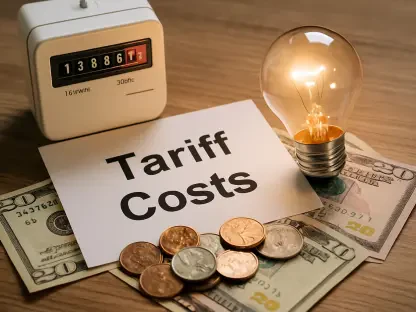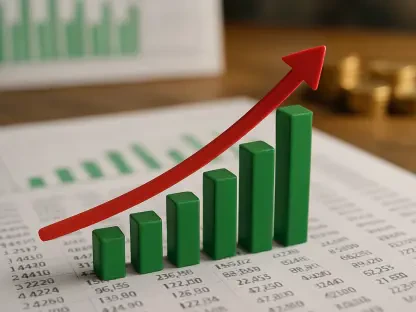Indonesia dominates the global commodity stage as the leading producer and exporter of crude palm oil (CPO), a resource that powers industries from food manufacturing to biofuel production, injecting billions into the nation’s economy each year. This unparalleled position offers a wealth of opportunities for international buyers, yet it also presents a labyrinth of challenges, including volatile markets, fragmented supply chains, and stringent sustainability requirements. Navigating this complex terrain demands more than just transactional know-how; it requires deep, actionable insights and reliable partnerships. In this dynamic environment, a specialized entity steps forward to illuminate the path for buyers, providing free, exclusive market intelligence to tackle these obstacles head-on. This article delves into the economic might of Indonesian commodities, the hurdles faced by global businesses, and the innovative solutions that are reshaping sourcing strategies.
The significance of Indonesia’s commodity sector extends beyond mere numbers, shaping global trade patterns with its vast output of palm oil, coal, and nickel. These resources are not just exports but pillars of economic stability, sustaining a consistent trade surplus for the country over several years. However, the intricacies of sourcing from such a powerhouse are often underestimated, with buyers grappling to align with both market trends and ethical mandates. A closer look reveals how strategic guidance can transform these challenges into opportunities, ensuring that businesses thrive in a competitive landscape. By exploring the latest market dynamics and the tools available to international players, a clearer picture emerges of how to tap into this resource-rich market effectively.
The Economic Might of Indonesian Commodities
Palm Oil: The Cornerstone of Trade
Indonesia’s unrivaled status as the world’s top palm oil producer and exporter places it at the heart of global supply chains, with its derivatives embedded in nearly half of all packaged supermarket products, from snacks to cosmetics. This pervasive presence underscores the commodity’s critical role in daily life and industrial applications. In 2022, the palm oil sector alone contributed a staggering USD 39.07 billion to the economy, a figure that highlights its position as a linchpin of national trade. This economic engine has helped maintain a positive trade balance for over five consecutive years, offering a stable sourcing hub for international buyers. Yet, the sheer scale of this market introduces logistical intricacies, as demand continues to surge across diverse sectors, pushing buyers to seek reliable channels to secure consistent supply amidst growing global competition.
Beyond palm oil, Indonesia’s commodity portfolio includes significant contributions from coal and nickel, each vital to specific industrial needs worldwide. Coal, long a staple export, increasingly supports domestic priorities like power generation and nickel smelting, which in turn fuels the booming electric vehicle battery industry. Government policies, such as quotas on nickel exports to stabilize prices, create ripples that affect global availability and cost structures. These interconnections between commodities mean that shifts in one sector can influence another, requiring buyers to adopt a broader perspective when planning procurement. For those sourcing from Indonesia, understanding these policy-driven dynamics alongside market trends becomes essential to avoid disruptions and capitalize on emerging opportunities in this multifaceted trade environment.
Crude Palm Oil Market Growth
The crude palm oil (CPO) market demonstrates remarkable resilience and expansion, with export values climbing 32.92% year-on-year to reach USD 14.02 billion during the reported period, reflecting robust global demand. This growth is further evidenced by a 10.95% increase in export volume to 13.64 million tons, paired with a 20.68% rise in average price per ton to USD 1,042.72. Such figures indicate not just a temporary spike but sustained interest from international markets, driven by palm oil’s versatility in food, personal care, and energy sectors. Forecasts suggest prices could climb to between USD 1,100 and USD 1,200 per ton by year-end, bolstered by favorable trade agreements like the Indonesia-European Union Comprehensive Economic Partnership Agreement (CEPA). For buyers, this signals a window to invest in a thriving market, provided they can navigate its inherent volatility and competitive pressures.
CPO’s pricing dynamics are intricately linked to other vegetable oils, such as soybean, with indicators like the Soybean Oil – Palm Oil (BOPO) spread guiding purchasing decisions. Buyers often weigh cost-effectiveness across these alternatives, making market intelligence a critical tool for strategic planning. The competitive landscape demands an understanding of supply-demand shifts and inter-commodity relationships to ensure optimal sourcing choices. Specialized insights into these trends enable businesses to anticipate price movements and secure advantageous deals. As global demand for sustainable and cost-efficient oils continues to grow, staying ahead of these market nuances becomes a key differentiator for companies aiming to maintain profitability and reliability in their supply chains.
Challenges in Sourcing from Indonesia
Market Volatility and Supply Chain Woes
International B2B buyers venturing into the Indonesian commodity market often encounter significant turbulence due to fluctuating raw material prices, which can severely impact profit margins, especially when end customers resist corresponding price hikes in finished goods. This volatility creates a precarious balancing act, as businesses strive to predict and adapt to sudden cost shifts. Supply chain fragmentation further complicates matters, leading to operational inefficiencies such as overstocking, which ties up capital in warehousing, or stockouts, which disrupt production and damage reliability. These challenges can erode financial stability, making it imperative for buyers to establish robust mechanisms that mitigate risks and ensure a steady flow of goods despite market unpredictability.
Another pressing issue lies in the inherent trust deficit when dealing with suppliers located thousands of miles away. Verifying a supplier’s legitimacy, operational capacity, and adherence to quality standards without a physical presence is a daunting task. The risk of engaging with unreliable partners can result in substandard products, delayed shipments, or even financial losses, all of which tarnish a company’s reputation and bottom line. This underscores the value of intermediaries who can provide thorough vetting and assurance of supplier credibility. By bridging the geographical and informational gap, such partnerships help buyers avoid costly missteps and build confidence in their sourcing decisions, ensuring smoother transactions in a complex market landscape.
Regulatory and Ethical Pressures
Navigating the regulatory landscape presents a formidable challenge for buyers sourcing commodities from Indonesia, particularly with stringent mandates like the European Union Deforestation Regulation (EUDR), which requires proof that palm oil products are not linked to deforestation. Compliance with such frameworks is non-negotiable for accessing key markets, especially in Europe, where ethical sourcing is increasingly tied to trade permissions. Failure to meet these standards can result in restricted market entry, legal penalties, and reputational harm. Buyers must therefore invest in systems and partnerships that ensure traceability and adherence to these rigorous environmental criteria, aligning their operations with global expectations.
Ethical concerns further compound the regulatory burden, as the palm oil industry has long faced criticism for issues like habitat destruction and labor exploitation. Historical associations with deforestation and social conflicts, such as disputes over land rights with indigenous communities, continue to shape public and market perceptions. These issues demand proactive measures to safeguard brand integrity and maintain consumer trust. Additionally, trade disputes, exemplified by the World Trade Organization’s rulings on EU duties against Indonesian biodiesel, highlight the political dimensions buyers must navigate. Balancing compliance with competitive pricing requires a strategic approach, often supported by expert guidance to address both legal complexities and moral imperatives in sourcing practices.
Sustainability: A Non-Negotiable Standard
Environmental and Social Concerns
The environmental impact of palm oil production in Indonesia remains a focal point of global scrutiny, with deforestation of biodiverse rainforests posing a severe threat to ecosystems and contributing to climate change on a significant scale. Iconic species, such as the orangutan and Sumatran rhino, face habitat loss due to land clearing for plantations, drawing widespread criticism from conservationists and policymakers alike. This ecological footprint not only affects biodiversity but also influences market dynamics, as consumers and regulators demand greater accountability. Addressing these concerns is crucial for companies aiming to maintain credibility and access to environmentally conscious markets, pushing the industry toward more responsible land-use practices.
Social challenges add another layer of complexity, with issues like labor exploitation and land disputes between plantation owners and indigenous communities frequently reported in the palm oil sector. These conflicts often stem from unclear land tenure and inadequate worker protections, leading to tensions that can disrupt supply chains and attract negative publicity. Such social dimensions are as critical as environmental ones, as they impact the industry’s reputation and long-term viability. Rather than boycotting palm oil, which could shift deforestation pressures to less efficient alternatives like soybean oil, the emphasis must be on fostering sustainable practices. Supporting certified production offers a more viable path, ensuring that ethical considerations are integrated into sourcing strategies without sacrificing global supply needs.
Navigating Certification Schemes
Sustainability certifications have become indispensable for buyers sourcing palm oil from Indonesia, with schemes like ISPO (Indonesian Sustainable Palm Oil), RSPO (Roundtable on Sustainable Palm Oil), and ISCC (International Sustainability and Carbon Certification) addressing distinct aspects of ethical production. ISPO, a mandatory standard in Indonesia, ensures compliance with national laws on environmental and labor practices. RSPO, a voluntary global benchmark, focuses on no-deforestation policies and human rights, making it essential for markets like Europe and North America. Meanwhile, ISCC targets greenhouse gas reductions and sustainable land use, particularly relevant for biofuel applications. Each certification serves a specific purpose, but their overlapping requirements can create confusion for buyers unfamiliar with the nuances of each standard.
Selecting the appropriate certification often depends on the target market’s priorities, adding a layer of strategic decision-making to the sourcing process. For instance, a European buyer might prioritize RSPO to meet stringent regional demands, while a biofuel manufacturer may require ISCC to comply with energy sector regulations. Navigating this maze of certifications is no small feat, as non-compliance can jeopardize market access and partnerships. Expert guidance in aligning sourcing with these standards transforms a potential burden into a competitive advantage. By connecting buyers with certified suppliers and providing clarity on regulatory expectations, such support ensures that sustainability becomes a cornerstone of business strategy rather than a mere checkbox.
Arie Palm Oil & Commodities: Your Strategic Partner
Data-Driven Market Intelligence
In the ever-shifting landscape of Indonesian commodities, access to precise, data-driven market intelligence is a critical asset for international buyers aiming to stay ahead of trends and mitigate risks effectively. Detailed analysis of supply-demand fluctuations, price volatility, and inter-commodity relationships, such as the dynamics between palm oil and other vegetable oils, equips businesses with the foresight needed to make informed decisions. Whether sourcing palm oil for food production or nickel for battery manufacturing, understanding these market intricacies allows buyers to hedge against adverse price movements and identify optimal entry points for procurement. This level of insight is not just a luxury but a necessity in a market where even small miscalculations can lead to significant financial setbacks.
What sets certain market facilitators apart is their commitment to providing these insights at no cost, prioritizing long-term partnerships over immediate gains. Such an approach fosters trust, particularly during the often protracted B2B sales cycles inherent to commodity trading. By offering free resources that delve into market forecasts and competitive analyses, buyers gain the confidence to navigate uncertainties with a clear strategy. This support is especially valuable in a context where policy shifts, such as changes in export quotas, can alter market conditions overnight. Empowering clients with actionable data ensures they are not merely reacting to changes but proactively shaping their sourcing plans to align with both current realities and future projections.
Verified Supplier Network and Compliance
One of the most daunting barriers for international buyers in the Indonesian commodity market is the trust deficit that arises when verifying suppliers from a distance, a challenge addressed through rigorous, multi-layered vetting processes by specialized partners. Legal validations via government registries confirm a supplier’s legitimacy, while industry-specific checks through associations like GAPKI ensure adherence to sector standards. Further assurance comes from comprehensive due diligence, including third-party inspections and Certificates of Analysis (COA), which guarantee product quality and consistency. This structured approach creates a secure supply chain, minimizing risks like stockouts or non-compliant shipments that could disrupt operations and inflate costs for buyers.
Equally critical is the focus on sustainability compliance, where guidance through certification frameworks becomes a transformative tool for aligning sourcing with global demands. Tailored support in navigating standards like RSPO or ISCC ensures that buyers meet market-specific requirements, whether targeting stringent European regulations or biofuel industry needs. By connecting clients with certified suppliers, regulatory burdens are reframed as opportunities to stand out as leaders in ethical trade. This holistic model not only mitigates the risks of non-compliance but also enhances brand reputation in an era where sustainability is a key differentiator. Such strategic assistance redefines commodity sourcing, turning potential pitfalls into pathways for long-term success and market credibility.
Building Resilient Partnerships for the Future
Reflecting on the journey through Indonesia’s commodity landscape, it’s evident that past efforts by buyers often stumbled over unpredictable market shifts and compliance hurdles, yet solutions emerged through innovative collaborations. Strategic alliances proved instrumental in overcoming volatility, as seen in the way data-backed insights helped anticipate price trends and supply constraints in previous dealings. Historical challenges with supplier reliability were addressed through meticulous verification processes that minimized risks and ensured quality, setting a precedent for smoother transactions. These experiences underscored the value of moving beyond transactional interactions to forge enduring relationships that prioritized mutual growth and stability.
Looking ahead, the path to sustainable sourcing in this vibrant market lies in deepening such partnerships to build resilience against future uncertainties. Businesses should leverage free market intelligence to stay informed about evolving trends and policy changes, using this knowledge to refine procurement strategies over the coming years. Aligning with verified supplier networks remains a cornerstone for ensuring consistency, while embracing sustainability certifications can unlock access to discerning global markets. By investing in these collaborative frameworks, companies can transform challenges into competitive strengths, securing their position in a dynamic trade environment. This forward-thinking approach, grounded in lessons from past engagements, paves the way for lasting success in tapping into Indonesia’s commodity wealth.









